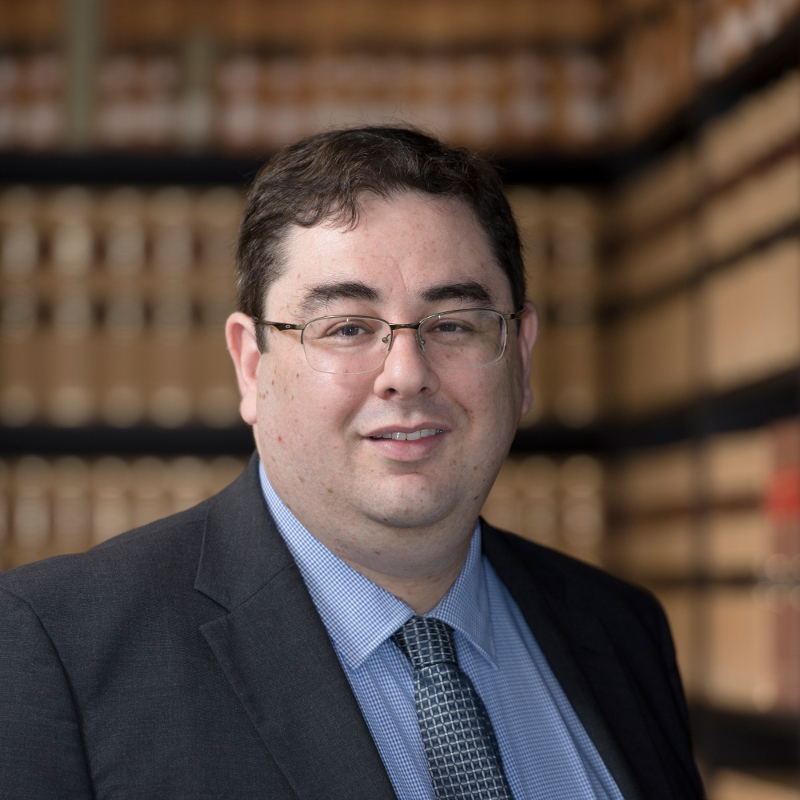Tackling Racism and Bigotry with OHPI
In early 2012 I founded the Online Hate Prevention Institute (OHPI) Australia’s only national charity tackling antisemitism, racism, bigotry, bullying and violent extremism in social media platforms like Facebook, YouTube and Twitter. As Managing Director and CEO oversaw OHPI’s operations, managed our four other staff, raised
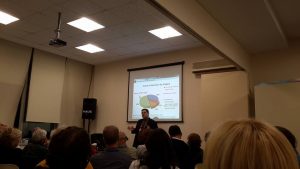 In under 5 years I build OHPI’s online following to over 24,000 Facebook supporters, produced over 160 articles, 11 major reports, 3 book chapters and 4 peer reviewed scholarly articles. Content produced by OHPI was shared / liked over 90,000 times reaching millions.
In under 5 years I build OHPI’s online following to over 24,000 Facebook supporters, produced over 160 articles, 11 major reports, 3 book chapters and 4 peer reviewed scholarly articles. Content produced by OHPI was shared / liked over 90,000 times reaching millions.
OHPI was also well respected among experts. OHPI presented to the United Nations in New York, the Global Forum to Combat Antisemitism, the International Holocaust Remembrance Alliance, the World Jewish Congress, the IEEE Computer Society and many more. Presentations took place in Australia, New Zealand, the United States, Israel, Canada, India, Poland, Hungry and Romania.
Media coverage has ranged in print from The Australian to the BBC, on television from Channel 10’s The Project to SBS News, on radio from 3AW to ABC Radio National and Triple J. See http://ohpi.org.au for more information on OHPI.
Empowering Students Globally
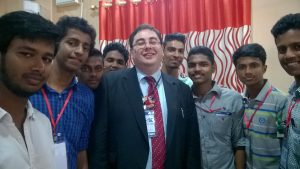 I served on the IEEE Computer Society’s global committee managing student awards since 2012, becoming Vice-Chair of the committee in 2013 and Chair in 2014. In 2015 and 2016 I served as Vice Chair (Awards and Recognition) of the Member and Geographic Activities Board which oversees this work.
I served on the IEEE Computer Society’s global committee managing student awards since 2012, becoming Vice-Chair of the committee in 2013 and Chair in 2014. In 2015 and 2016 I served as Vice Chair (Awards and Recognition) of the Member and Geographic Activities Board which oversees this work.
Through my work with student awards I have mentored IEEE Computer Society Student Ambassadors around the world. I have also had the privileged to visit student conferences and meet with students at their university in Australia, India, the USA and Canada. Some of our students have gone on to amazing things, including taking on leadership positions within the global level committee itself.
International Diplomacy and Global Action
I’ve been privilege both to participate in a range of excellent training opportunities and to make use of the skills I’ve learned in serving the community on the international stage.
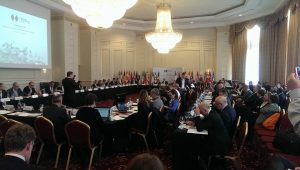 Through the appointment of the Australian Department of Foreign Affairs and Trade I serve, along with 7 other experts and an Ambassador, on Australia’s delegation to the International Holocaust Remembrance Alliance (IHRA). Within IHRA I am proud to have been appointed to the steering committees of both the Communication Working Group and the Committee on Antisemitism and Holocaust Denial. Through the appointment of the Israeli Foreign Ministry, since 2009 I’ve served as a Co-Chair of the Global Forum for Combating Antisemitism as well as serving as co-chair of it’s Working Group on Antisemitism in the Media and Online. I have previously served as an expert on the Inter-Parliamentary Coalition for Combating Antisemitism, attending and speaking on a panel a the 2010 meeting in the Canadian Parliament. I’ve testified before a hearing of the Italian Parliament, with my testimony leading to significant changes to Italian law.
Through the appointment of the Australian Department of Foreign Affairs and Trade I serve, along with 7 other experts and an Ambassador, on Australia’s delegation to the International Holocaust Remembrance Alliance (IHRA). Within IHRA I am proud to have been appointed to the steering committees of both the Communication Working Group and the Committee on Antisemitism and Holocaust Denial. Through the appointment of the Israeli Foreign Ministry, since 2009 I’ve served as a Co-Chair of the Global Forum for Combating Antisemitism as well as serving as co-chair of it’s Working Group on Antisemitism in the Media and Online. I have previously served as an expert on the Inter-Parliamentary Coalition for Combating Antisemitism, attending and speaking on a panel a the 2010 meeting in the Canadian Parliament. I’ve testified before a hearing of the Italian Parliament, with my testimony leading to significant changes to Italian law.
These opportunities are to a large part the result of the opportunities and training I received including completing a two week Young Jewish Diplomatic Seminar with the Israeli Foreign Ministry in 2006, being a Legacy Heritage Fellow for a year in 2007-2008, and being a member of the ROI Community from 2009. Each of these experiences provided opportunities for training, advice and mentorship with outstanding leaders.
Shaping Opinion Through Online Public Diplomacy
I have a run a wide range of online public diplomacy projects on my own, as a private contractor for major organisations, and through the Community Internet Engagement Project which I established within the Zionist Federation of Australia from 2009 to 2011. These efforts have raised public awareness of major issues, helped to shape public perceptions of events and focused the opinions of decision makers.
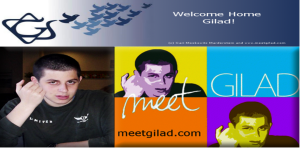 The greatest online public diplomacy highlight for me personally was the “Meet Gilad 2.0” campaign which gathered personalized messages for Gilad Shalit when we was in captivity. The campaign used custom software I designed and built with the assistance of my team. 34 organisations from around the world supported the project and we collected personal messages from over 2000 individuals from 60 countries. The campaign helped to make Gilad’s plight personal to thousands of people. A copy of the messages was sent to his family shortly before his release, and a year or so later I had the pleasure of meeting Gilad and briefly discussing the project with him. Learn more about “Meet Gilad 2.0“. Details on some other projects can be seen here.
The greatest online public diplomacy highlight for me personally was the “Meet Gilad 2.0” campaign which gathered personalized messages for Gilad Shalit when we was in captivity. The campaign used custom software I designed and built with the assistance of my team. 34 organisations from around the world supported the project and we collected personal messages from over 2000 individuals from 60 countries. The campaign helped to make Gilad’s plight personal to thousands of people. A copy of the messages was sent to his family shortly before his release, and a year or so later I had the pleasure of meeting Gilad and briefly discussing the project with him. Learn more about “Meet Gilad 2.0“. Details on some other projects can be seen here.
Bringing transparency to social media
In early 2008 I coined the term “antisemitism 2.0” for the first time highlighting the way antisemitism was spreading through social media and as a result becoming normalised in society. At the time no one was tackling antisemitism in social media. Major organsiations were still counting traditional websites.
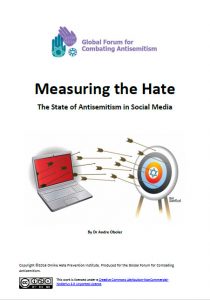 Following my work on “Antisemitism 2.0”, in 2009 the Israeli Foreign Ministry appointed me Co-Chair of the Working Group on Antisemitism on the Internet and in the Media of the Global Forum to Combat Antisemitism.
Following my work on “Antisemitism 2.0”, in 2009 the Israeli Foreign Ministry appointed me Co-Chair of the Working Group on Antisemitism on the Internet and in the Media of the Global Forum to Combat Antisemitism.
I worked with experts to tackle the disruptive impact of social media, leading global efforts against growing antisemitism. This began with defining the need for transparency and way to measure the level of antisemitism being uploaded to social media platforms and what the companies were doing in response.
To measure the hate I designed and lead the development on FightAgainstHate.com, a crowd sourcing tool that gathers information through crowd sourcing from the public. The resulting empirical report “Measuring the Hate: The State of Antisemitism on Social Media” is based on over 2,000 items of antisemitism gathered in just 2 months through the tool, and for the first time highlighted the significant gap between the policies of social media and the reality of how they respond when antisemitism is reported by the public. On average only 20% of the antisemitic items had been removed after 10 months, but the report also provided much greater depth on the rates for different types of antisemitism on different platforms. The tool and the report for the first time brought transparency to the problem of hate speech in social media. The report has been cited in The Australian, Haaretz, Forward and other newspapers. A later report using the same tool and methodology examined anti-Muslim hate in social media.
Last updated 22 November 2016
